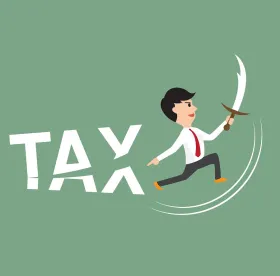California’s bill to authorize tax-based false claims actions—allowing private, profit-motivated parties to bring punitive civil enforcement lawsuits—cleared the Assembly Judiciary Committee on May 11 in a party-line vote. The bill, AB 2570, is sponsored by the committee’s chair, Assemblymember Mark Stone (D), and has strong backing from Attorney General Xavier Becerra. It now goes to the Assembly Appropriations Committee.
Proponents claim the bill only affects “tax cheats” but under similar laws in Illinois and New York, very few cases involve internal whistleblowers, actual fraud or reckless disregard of clear law. Instead, they typically involve inadvertent errors or good-faith interpretations of murky tax law. Moreover, while there often is an erroneous assumption that most tax false claims actions are brought by “by-the-books” whistleblowers acting in the interest of the taxing jurisdiction, claims in the tax realm are primarily developed and driven by a cottage industry of plaintiffs’ law firms with profit-motivated incentives seeking to exploit an area of the law that leans in their favor.
In a hearing before the Illinois House Revenue and Finance Committee, former Illinois Revenue Director Brian Hamer described the Illinois cases as being brought by a financially motivated third party adept at manipulating the qui tam process to victimize businesses that at most made an inadvertent mistake. At that hearing, several witnesses described being forced into settlements for amounts far exceeding any tax owed because the costs of litigation are so high. Mark Dyckman, the former General Counsel for the Illinois Department of Revenue, has said that “the cases have clearly interfered with the administration and enforcement of tax law and may have even ultimately cost the state money, though it’s impossible to quantify how much.” A 2007 study by Columbia Law Review concluded that 73 percent of qui tam actions are frivolous.
Why does false claims expansion to taxes lead to such rampant abuse? The treble damages financial incentive encourages profit-motivated bounty hunters to develop theories of liability not established or approved by the agency responsible for tax administration. In Illinois alone, the number of claims by one filer is in the thousands. Other problematic provisions in the California proposal that would tilt the playing field are a separate statute of limitations, a lenient burden of proof and use of sealed complaints, and extremely punitive damages.
Supporters point to “tax gap” estimates of uncollected tax revenue and claim this bill will provide a tool to collect that money from underpaying businesses. However, the vast majority of the “tax gap” consists not of missing corporate tax payments, but individual income taxes subject to little or no information reporting, with the Treasury Department particularly highlighting gig economy workers underreporting their income. False claims expansion to taxes would cause small businesses to incur enormous costs or force them into settlements to avoid the risk of paying treble damages in false claims suits, including for weak or even meritless claims. The bill would lead to considerable costs to taxpayers to investigate allegations and fight frivolous demand letters and subsequent claims in court.
The only winners if this bill passes is the cottage industry of money hungry plaintiffs’ attorneys that will descend on California and harass good-faith taxpayers in an effort to pad their own pockets. We are hopeful that legislators will fully consider the countless negative externalities that removing the false claims act tax bar will create. In the meantime, the California Taxpayers Association, who testified against the proposal is working to coordinate opposition, and we encourage our readers to contact them and the authors if you would like to discuss this issue in more detail.







 />i
/>i

